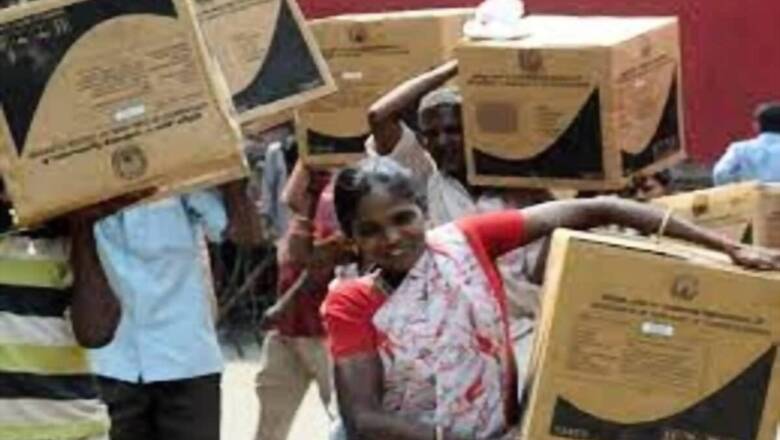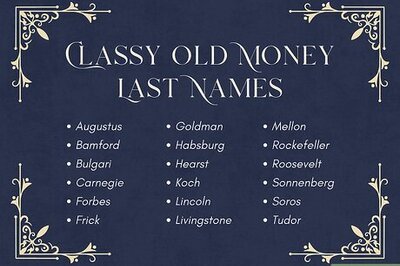
views
Freebie culture may be an inseparable part of Tamil Nadu politics now but apart from consistently pulling the annual debt since the time DMK formed government in 2006, it also vitiates the basic premise of the Dravidian reform politics that was fundamentally based on rationalism and social empowerment.
The Madras High Court in Chennai while slamming the prevailing freebie political culture today made the scathing remark on the state of the affairs. The bench said politicians have failed to provide basic amenities like water, transport and health to the people but distribute freebies like colour TVs, laptops, fans and mixers and grinders.
The list is long with freebies like free electricity, 50% subsidy to women on buying scooters and even Amma canteens for subsidized food, parks and gymnasiums. Add to it the gold scheme as well started by Jayalalithaa. According to the analysis of the State government’s budget documents, since 2011, Tamil Nadu have distributed more than 6,000 kg of gold as freebies as marriage assistance. Then there are other schemes like cash entitlement and free houses to poor people and free school uniforms to students.
Under Jayalalithaa and the AIADMK tenure, the State debt as percentage of GSDP has around 5% increase in 2011. It was 16.92% in 2011-12. Now it is 21.83%.
Freebie Culture and Tamil Nadu State Debt Responsibility
The culture, if has raised Tamil Nadu debt by around 10 times since 2006, also highlights how dissociated the Dravidian parties have become from the Dravidian ideology.
The Dravidian ideology runs on the very tenets of the Periyar movement that gave rise to two Dravidian parties DMK and AIADMK. It was also known as the self-respect movement and focused on the preservation of the Tamil language and culture as its sole driving point and weaved a culture around itself with different elements that were going to decide Tamil Nadu’s politics and society for years to come. The Dravidian parties demanded language identity and non-imposition of Hindi and said social reforms were the only way out to a make a secular, caste-free society.
Tamil Nadu had seen freebie culture even in 1960s. In 1967, then CM, DMK’s CN Annadurai assured 4.5 kg rice for Re 1 but the scheme was dropped in 1969 as it was putting in an additional burden on the State’s financial resources.
But its big push came in 2006. The DMK, with its government, for the first time, on a large scale started to push this the freebie culture really deep to manage its political appeal and the AIADMK, the party that always had a soft Hindutva approach, only took it further.
Social reforms are basically about addressing issues like health needs, education, water, transport and jobs but if we go by the scathing observation of the Madras High Court today, the prevailing political culture in Tamil Nadu has taken a different shape today, i.e., reforming people ‘without reforming them’ or making them lazy as the High Court has added. The High Court also lamented on the job situation in the State saying even engineering graduates today are forced to work as sweepers.
In 2006, Karunanidhi had formed a minority government and spent a huge chunk of revenue in distributing freebies he had promised. His government spent Rs 3,340 crore alone on 1,52,80,000 14-inch TV sets he had promised during his five-year term.
Jayalalithaa only magnified it.
DMK, by many critics, is called an anti-Hindu party, but now this Dravidian party has announced freebies for Hindu religion in the manifesto for the Assembly election like Rs 1 lakh for pilgrimage to the Hindu temples and Rs 2,000 monthly pension for priests in villages. The manifesto has also promised to increase their salary to Rs 4,000 from existing Rs 3,000.
Atheism was the thread prevailing in Periyar’s political journey through Dravida Kazhagam but religion is now the part of the election manifesto of the Dravidian parties. Also, both Dravidian parties now invoke God to blame each other in election campaigns.
Rationalism was once the guiding force behind the Dravidian parties but now they seem to have changed their track to money-based opportunism.
Even if Tamil Nadu’s fiscal indicators have seen a rapid deterioration. It was a revenue surplus State in 2012-13 with surplus of Rs 1,750 crore, means its earnings were more than its expenditure. Now, Tamil Nadu is a revenue deficit State, at Rs 65,994 crore, and according to the 15th Finance Commission report, the State’s most borrowings are now to meet its revenue deficit gap.
Read all the Latest News, Breaking News and Coronavirus News here. Follow us on Facebook, Twitter and Telegram.




















Comments
0 comment